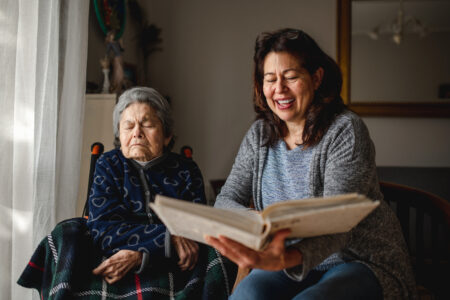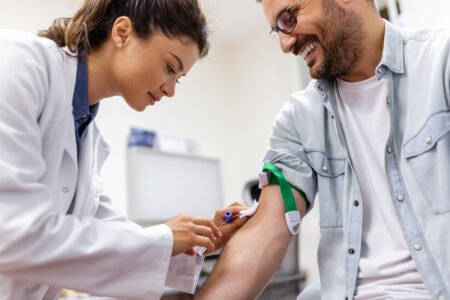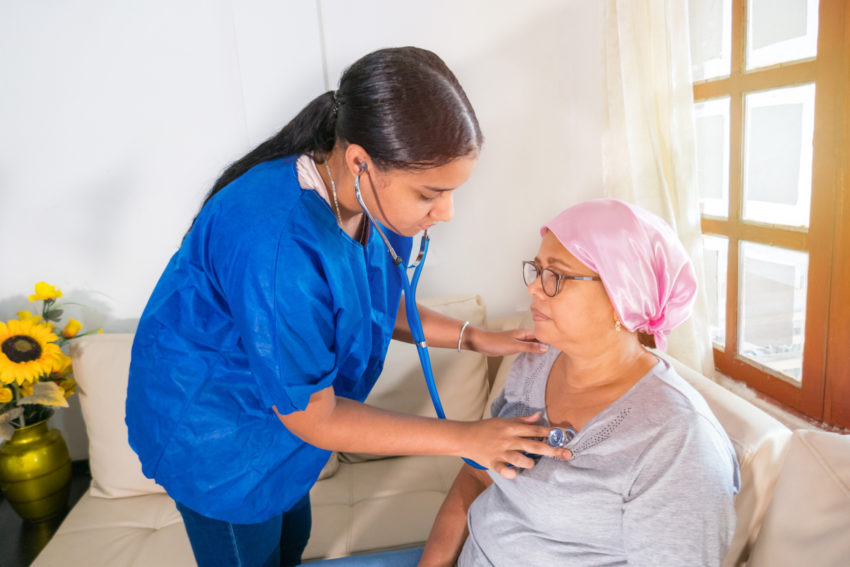
Share On Social!
Simple logistics—availability, childcare, and time—stop some Latinas and other women of color from volunteering for breast cancer clinical trials, according to a new survey.
The survey, led by For The Breast of Us, an online breast cancer survivor community, and Sommer Consulting, found that the anticipated time demands of a clinical trial may appear “too intimidating.”
Most women of color struggle with multiple demands in their lives.
The perceived or real logistics of participating in a clinical trial could make it harder.
One respondent said: “You still have to worry about how am I going to run my household, especially as a woman of color, who typically a lot of times are single-family or single-parent households.”
“The results of this survey demonstrate how important it is to find ways to address logistical barriers to cancer clinical trial participation,” said Dr. Amelie G. Ramirez, director of the Salud America! program at the Institute for Health Promotion Research at UT Health San Antonio. “We need more Latinas in clinical trials to make sure researchers create treatments that work best for this population.”
About the Clinical Trials Survey with Latinas and Other Women of Color
Clinical trials help researchers improve treatment for current cancer patients, or better understand cancer to help future cancer survivors.
Yet Latinos are underrepresented in clinical research.
Without adequate Latino representation in clinical trials, researchers cannot find the treatments and programs that work best for this population.
 Logistics are a big reason for this lack of representation, according to the survey by For The Breast of Us.
Logistics are a big reason for this lack of representation, according to the survey by For The Breast of Us.
They interviewed 59 women of color. They found that many are concerned with who will take care of their kids if they are part of a clinical trial, especially those with no family or friends to help.
“Some women in the workforce do not have the luxury of having flexible schedules or employers who will work with them so they can get to doctors’ appointments,” according to For the Breast of Us. “Coordinating their work schedules is typically challenging enough with their standard treatments, and they anticipate clinical trial schedules would be even more demanding.”
One of the interviewees mentioned the struggle to “make your ends meet.”
“So, it’s almost like, do I participate in this clinical trial that may save my life, or…do I go to work and pay my bills so I can take care of my kids and my family? And that shouldn’t be an issue. That shouldn’t be a factor that someone has to consider when accepting a clinical trial,” said one of the interviewees.
Breast Cancer Among Latinas
Latinos historically face many disparities in incidence and death rates of certain cancers, such as liver, cervical, and rare cancers, compared to their white peers.
Breast cancer is the leading cause of death in Latinas.
While breast cancer death rates have declined in recent years, the rate of decline among Latinas is lower (1.1% per year) than their white peers (1.8% per year).
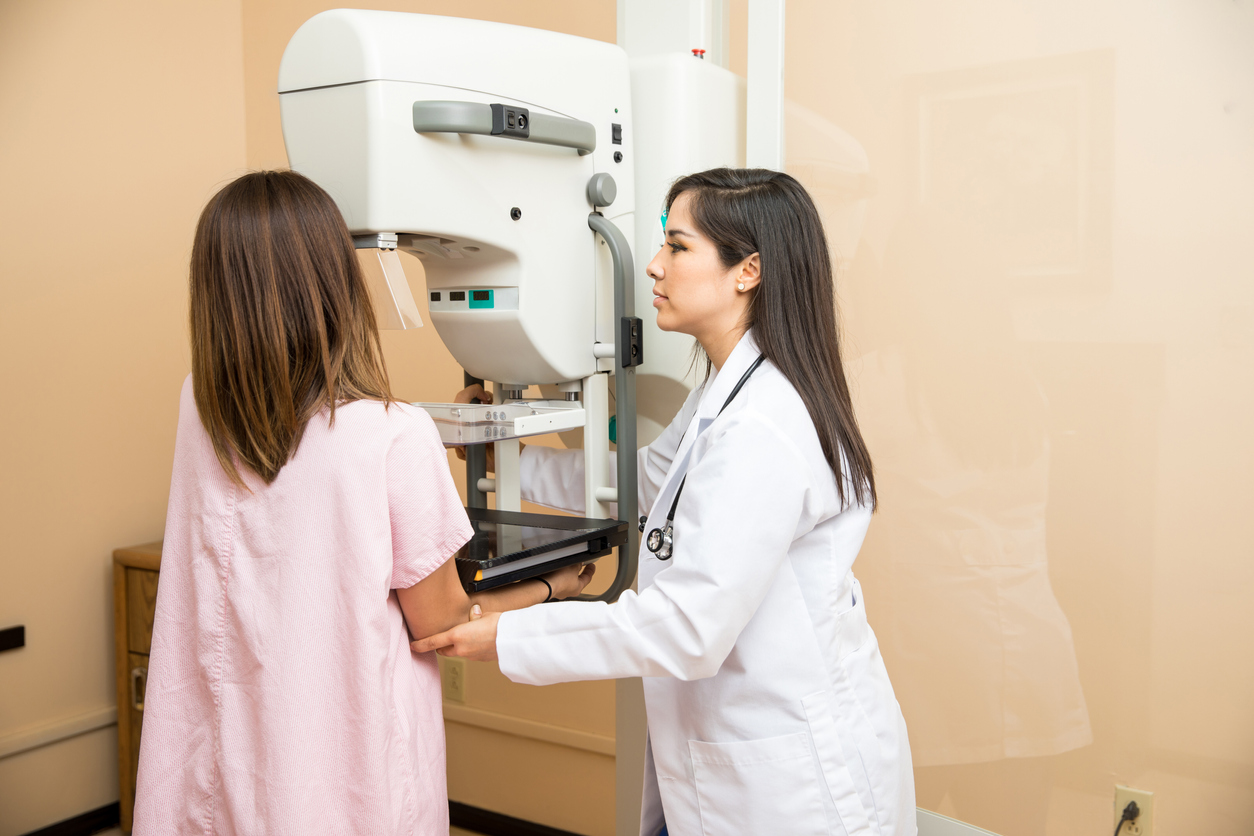 “Socioeconomic inequalities for cancer mortality widened over the past 30 years,” writes Stacy Cantu-Pawlik of the Salud America! program. “The cancer death rate was around 20% higher among people who lived in the poorest U.S. counties than those who lived in the most affluent counties. This includes preventable and highly treatable cancers.”
“Socioeconomic inequalities for cancer mortality widened over the past 30 years,” writes Stacy Cantu-Pawlik of the Salud America! program. “The cancer death rate was around 20% higher among people who lived in the poorest U.S. counties than those who lived in the most affluent counties. This includes preventable and highly treatable cancers.”
The breast cancer incidence rate increased in Latinas from 2006 to 2015 (0.4% annually) while remaining stable in non-Latina white women, and breast cancer is still the leading cause of death among Latinas.
Why Is Breast Cancer Such a Big Issue for Latinas?
Many issues cause the large gap in Latina breast cancer outcomes.
One is low cancer screening rates, which leads to late-stage breast cancer diagnoses. Mammography screening rates in women age 40 or older was 61% in Latinos and 65% in whites.
Other reasons are systemic barriers to health care access or insurance, distrust in medical providers, biologic and genetic differences in tumors, and higher prevalence of risk factors.
Racism is another factor. Almost 60% of Americans believe that racism can impact the health care an individual receives, according to a recent ASCO survey.
Also, two-thirds of Americans have skipped or delayed scheduled cancer screenings due to the COVID-19 pandemic, which is disproportionately harming Latinos.
“Cancer screenings are critical for detecting cancer early,” said ASCO Chief Medical Officer Richard L. Schilsky, according to the ASCO website. “Early detection is key to successfully treating many cancers. We need to make sure people continue to get their routine, evidence-based cancer screenings within a reasonable time period.”
Several initiatives are working to improve cancer screening rates among women of color.
“Better and more convenient screening tools for a variety of cancer types will help us achieve the targets set forth by leading healthcare organizations,” according to one study.
What about Clinical Trial Participation among Latinos?
Latinos first need to understand that clinical trials are an option.
 Interactive videos featuring real Latina cancer survivors talking about clinical trials can help Latina breast cancer patients consider trials as a treatment option, according to a recent study led by Ramirez of Salud America! at UT Health San Antonio.
Interactive videos featuring real Latina cancer survivors talking about clinical trials can help Latina breast cancer patients consider trials as a treatment option, according to a recent study led by Ramirez of Salud America! at UT Health San Antonio.
“Survivors talk about how they asked doctors questions and discussed clinical trials with their friends and families before participating. They also share how they overcame common cultural, attitudinal, and practical barriers to trial participation,” according to a Salud America! report.
Ramirez has another study, supported by a grant from Genentech, a member of the Roche Group, that aims to break down racial/ethnic barriers and increase Latino participation in cancer and Alzheimer’s clinical trials.
The work will activate the Salud America! to use culturally relevant digital health communications, advocacy networks, and clinical partnerships to promote health equity and advance clinical trials, including:
- improve Latino understanding of clinical trials and biobanking;
- increase Latinos’ self and collective efficacy for enrolling in clinical trials and biobanking;
- increase awareness of how unconscious biases and discrimination against Latinos curtails recruitment to clinical trials and biobanking;
- improve patient-provider communication and trust; and
- increase self and collective efficacy for participating in advocacy to promote policies and systems that reduce bias in healthcare settings and remove barriers to Latino participation in clinical trials and biobanking.
“Latinos in clinical trials are not only helping themselves,” Ramirez said. “They are also building a future with better treatments that can help their families and communities in the future.”
How Can You Help Latinos Consider Volunteering for a Clinical Trial?
You can share stories of Latina cancer survivors who may have also participated in clinical trials.
Here are some of their stories:
- Elsada Wilson: Amid Breast Cancer, Finding Hope Through a Clinical Trial
- Emelina Asto-Flores: Participating in a COVID-19 Vaccine Trial
- Julia Maues: Fighting Cancer to Advocate for Hope and Health Equity
- Myra Camino: ‘I Never Let Breast Cancer Steal my Joy’
- Tanya Enriquez DelValle: Keep Going, and Going, to Overcome Breast Cancer
- Mimi Frazier White: If We Fight Together, We Will Win Against Breast Cancer
- Ursula Garcia: What Breast Cancer Cannot Do
Share these stories to raise awareness of clinical trials as an option!
How Can You Volunteer for a Clinical Trial?
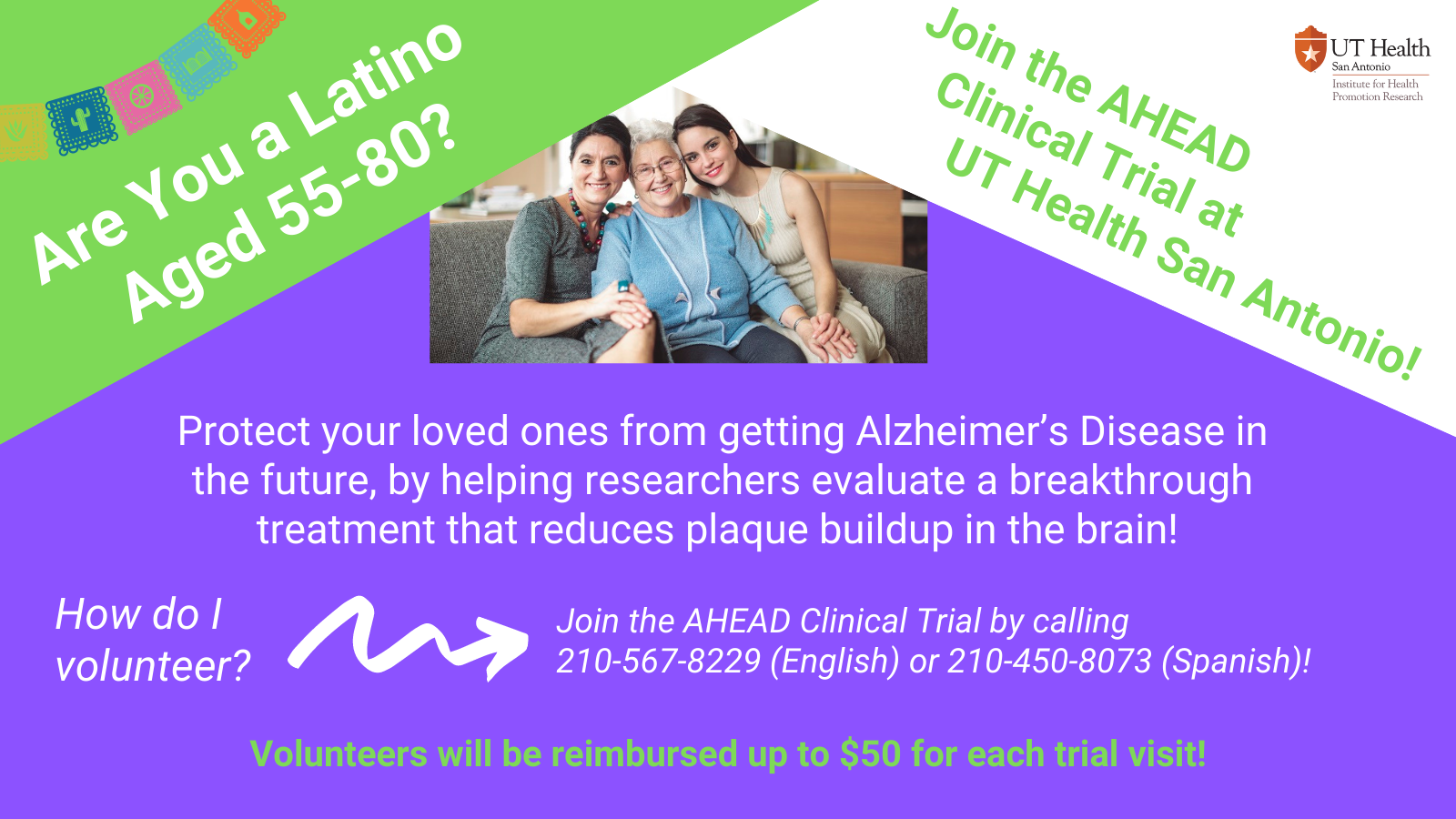 If you’re in San Antonio, volunteer for:
If you’re in San Antonio, volunteer for:
- A cancer clinical trial at the Mays Cancer Center at UT Health San Antonio
- An Alzheimer’s disease clinical trial at the Glenn Biggs Institute for Alzheimer’s and Neurodegenerative Diseases at UT Health San Antonio
- The AHEAD Trial. For people ages 55-80, this trial aims to protect against the onset of Alzheimer’s disease. This gives you the chance to contribute to healthier futures for your mom, dad, and and other family members.
- The REACH Trial. For people ages 55-89 with a diagnosis of mild cognitive impairment or Alzheimer’s disease, this trial aims evaluate a new treatment that aims to slow the effects of the disease.
You can also use the National Cancer Institute’s online search tool or call 1-800-4-CANCER to find a cancer clinical trial in your area!
You can also participate in the second phase of The Breast of Us and Sommer Consulting survey here.
By The Numbers
142
Percent
Expected rise in Latino cancer cases in coming years

